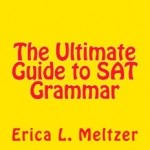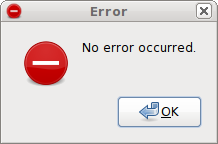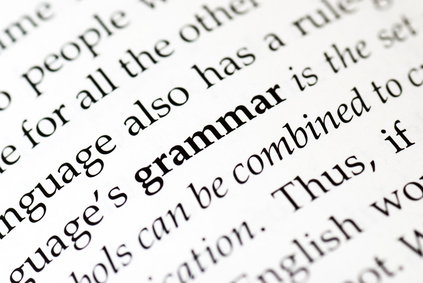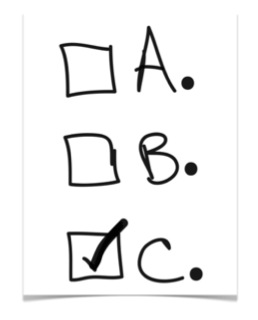The following article is an excerpt from my e-book SAT Grammar Crammer!
Relative Pronouns: “The movie who I saw recently was awesome!”
Does something seem weird about the title of this article? Are “movies” whos?
NO WAAAAAAAY! Movies are definitely not people.
“Who” is used for people and professions like “fireman” or “farmer.”
“That” and “which” are used for objects or non-people things like “movies.”
Here are two versions that fix the relative pronoun mistake: “The movie that I saw recently was awesome!” or “The movie, which I saw recently, was awesome!”
Here’s something else to watch for that we get away with in everyday speech, but not on the SAT Writing test:
Wrong: “My favorite book is the one where the puppies go on an adventure.”

Get Exclusive SAT Prep Tips!
I want to send you more tips to help your SAT score, but I need your email address to stay in touch. Enter your email below so I can send you my reports on the SAT and other subscriber-only bonuses.
Wrong: “The Revolutionary War was a time where many soldiers died.”
The word “where” is only for physical locations and places. Here’s how the above sentences should be fixed:
Right: “My favorite book is the one in which the puppies go on an adventure.”
Right: “The Revolutionary Way was a time when/in which many soldiers died.”
These words – “who,” “where,” “that,” “which,” “when,” “in which” – are known as “relative pronouns.”
Don’t worry about why they’re called that – I have no idea, personally, and can still get a perfect score on the SAT writing. Basically, these are non-specific words that can be used to stand in for more specific words, just like a pronoun such as “he” can stand in for someone specific like “Abraham Lincoln.”
Most of these words are also “question” words. However, right now we’re also able to use them like pronouns (read even more about pronouns), and they each have a specific use.
Just like you wouldn’t use “she” to refer to a male person, you can’t use “who” to refer to a table, or “when” to refer to a location.
Here are the rules:
“Who”: for people only
“That”: for non-human things only; doesn’t come after commas
“Which”: same as “that,” but must come after a comma
“Where”: for physical locations and places only
“When”: for times and time periods only
“In which”: a flexible option that often works when neither “where” nor “when” seems right. It can also substitute for “where” and sometimes for “when” (when discussing a time period or era rather than a specific time like “7 pm.”)
“Which” and “that” are almost the same, but need different punctuation. Both of the following sentences are correct:
Correct: The cat that drank the milk last night is gone.
Correct: The cat, which drank the milk last night, is gone.
Now compare the punctuation of those two sentences to these next two sentences, which are incorrect:
Incorrect: The cat, that drank the milk last night, is gone.
Incorrect: The cat which drank the milk last night is gone.
“Which” must follow a comma; “that” cannot.” When used as a question word, “which” does not follow a comma, because the sentence will begin with the question word: “Which of you ate my leftovers?”
Don’t sweat this too much; just use your common sense and do the SAT practice problems in my grammar book.
To get the complete text of this SAT Grammar lesson, along with more than 14 other lessons, two diagnostic tests and over two hundred practice questions written by a two-time perfect scorer and pro SAT tutor, order your copy of The Top 12 SAT Writing Grammar Rules today!
Further Reading:
What exactly is on the SAT Writing test?
SAT Writing Rules: Pronoun Number
SAT Writing Rules: Pronoun Case
Why Is Grammar Important?
Additional Resources:
SAT Grammar Crammer: Top 12 Rules of SAT Writing (e-Book)
Before you leave, be sure to join my SAT email list! I send readers subscriber-only exclusive content like my Urgent Report on SAT Reading to help you prepare for test day.

















Find Me on Social Media